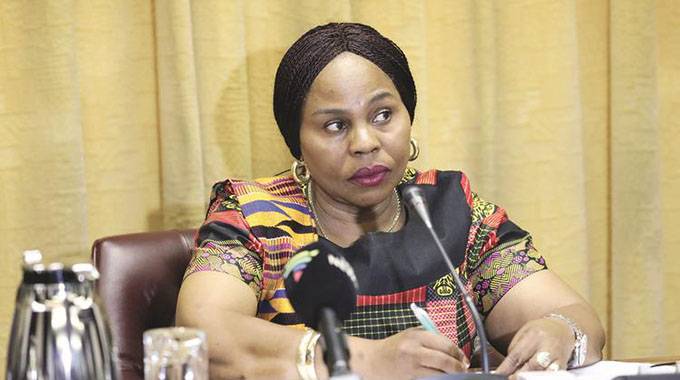Side-marketing of cotton, soya-beans criminalised
Side-marketing of soya-beans and raw unginned cotton was criminalised last Friday, with fines of three times the value of the side-marketed crop for both offending buyers and sellers plus two year jail terms, under new regulations gazetted by Minister of Lands, Agriculture, Fisheries, Water and Rural Resettlement Dr Anxious Masuka.
Exports of the two commodities by anyone except the Grain Marketing Board (GMB) were also banned, with the regulations putting in procedures that make valueless any of the two crops in possession of middlemen involved in side-marketing.
The new controls are contained in the Grain Marketing (Control of Sale of Cotton) Regulations 2021, which is Statutory Instrument 96 of 2021, and the Grain Marketing (Control of Sale of Soya Beans) Regulations 2021, which is SI97 of 2021.
Under the regulations both soya beans and unprocessed harvested cotton still containing its seeds have been declared controlled substances as defined by the Grain Marketing Act, a declaration that then allowed the Minister to make the controlling regulations.
The main difference between the two sets of regulations are that while the GMB is the only State agency that can deal in soya-beans, the cotton regulations allow “authorised agencies”, which are any other parastatal or entity acting on behalf of the Government to deal in raw unginned cotton with the same rights as the GMB.
The two sets of regulations first make it clear that anyone or any entity with a contractual obligation to deliver their soya-beans or raw cotton to a contractor must do so.
Soya-beans required to be sold to the GMB, and raw cotton required to be sold to the GMB or authorised agency, must be delivered to these at the times and places and in the quantities directed.
The GMB or an authorised agency cannot buy raw cotton from anyone except a contract farmer, a producer, who is a farmer not under contract, or a contractor. This means that middlemen have no market. For soya-beans no one can buy these from a contract farmer unless they have a contractual right to do so. The criminalises side-marketing middlemen.
Only the GMB can export soya-beans for the time being, and only the GMB or authorised agencies can export raw unginned cotton. Normally cotton is ginned, that is the seeds are removed from the bolls, before most of the cotton fibre is exported. The export monopoly does not apply to ginned cotton fibre. While the there is no ban on exporting cotton seed, it is traditionally sold to local oil expressers as a source of cooking oil.
Farmers can keep or move between districts no more than two 50kg bags of soya-beans without permission from the GMB. This prevents hoarding or attempts to circumvent marketing rules. They can move as much as they like to the nearest GMB depot, or when some authorised person has allowed, in writing, the movement and that authorisation must be shown to police on demand.
The regulations go into some detail of how the police or “authorised person” from another entity acting on behalf of the State can, when there are reasonable grounds of suspicion that the regulations are being breached, seize the produce plus any vehicle being used to transport it as an exhibit and how the produce must be stored or kept.
If it is found that the produce is subject to criminal sale or movement, it can then be forfeited to the State. Otherwise it must be returned and there are procedures laid down over how compensation can be claimed if there is damage or any loss.
The penalties for anyone guilty of breaching the regulations are a fine of three times the value of the batch of produce in question, using the price of the highest grade, or $800 if that is higher. A jail term of up to two years can also be imposed.
Side marketing has been a problem in previous years with middlemen driving around offering farmers instant cash at usually a lower price that the contractor or the GMB will offer. There are strong suspicions that some of these middlemen are either illegally exporting the produce, to get foreign currency, or are acting for those who do this.
Zimbabwe is at the moment an oil seed importer, with the largest buyers of foreign currency on the Reserve Bank of Zimbabwe auctions being the soya importers. That would explain the soya export ban until all Zimbabwean needs are met. Cotton is supposed to go through initial processing before export.-herald.cl.zw









